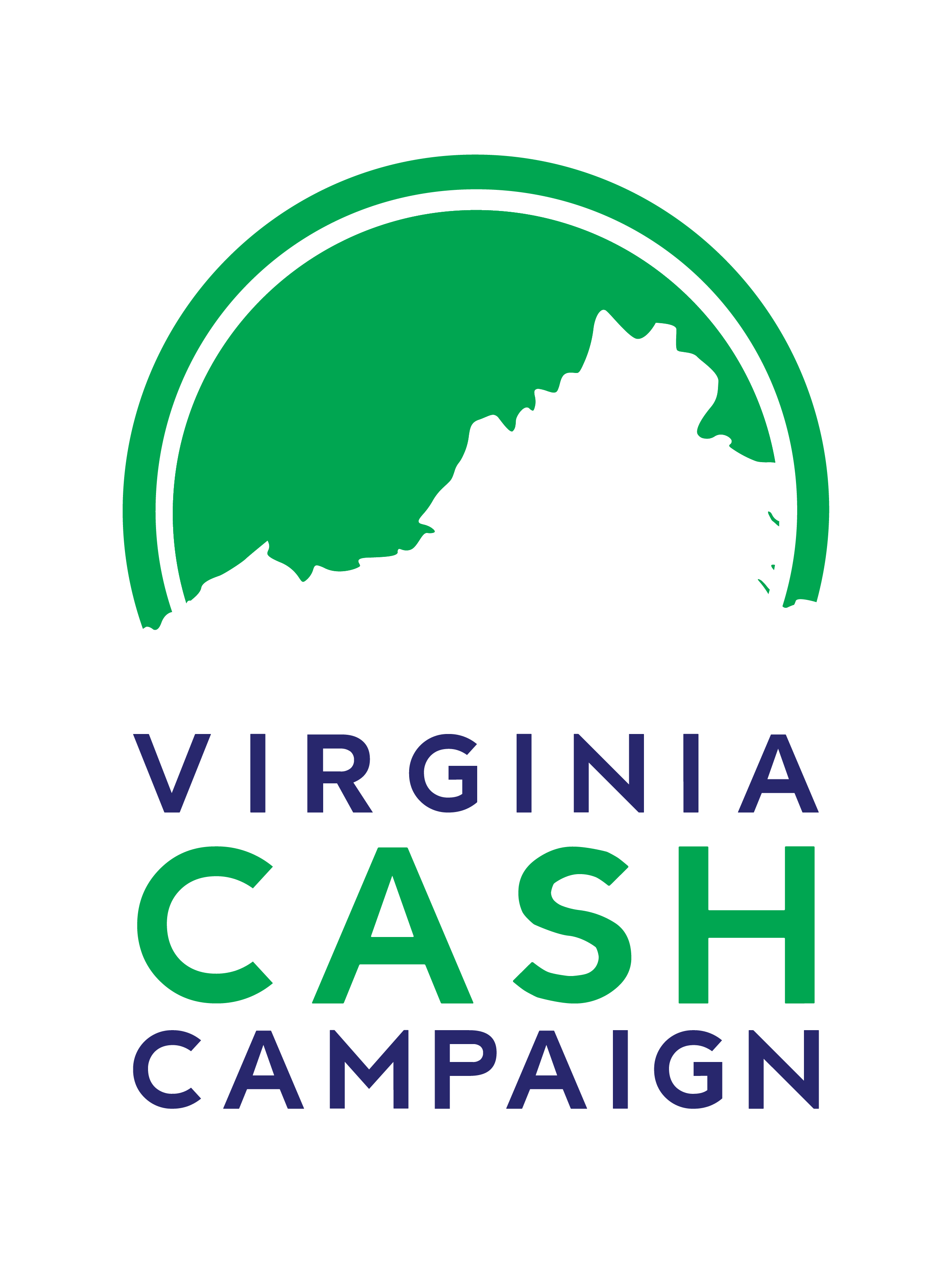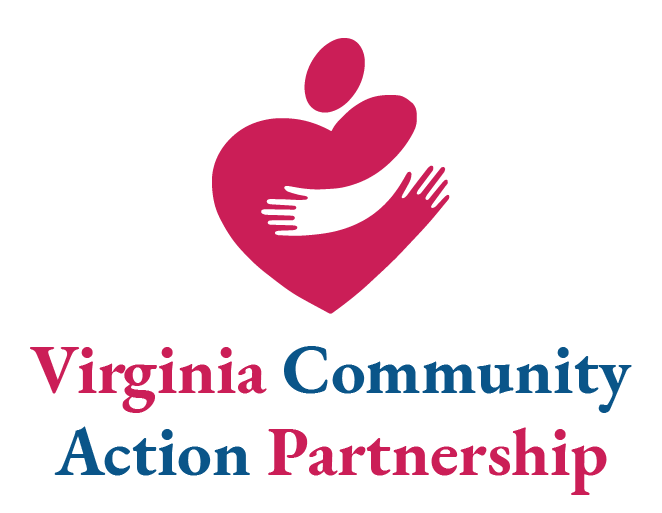Virginia’s Statewide Community Action Association
About VACAP
What is Virginia Community Action Partnership?
Virginia Community Action Partnership (VACAP) is the statewide membership association for Virginia’s thirty-one non-profit private and public community action agencies. VACAP’s mission is to build the capacity and competencies of Virginia’s community action agencies to achieve their mission of creating economic opportunities and facilitating mobility from poverty for the people of Virginia. At VACAP, we are committed to a future in which all of Virginia’s community action agencies are high impact and people and places across Virginia are thriving.
What is a Community Action Agency?
A community action agency (CAA) is a local organization with the mission of reducing poverty through locally-designed and delivered programs and services that are targeted to the specific needs of the community. CAAs exist in almost every county and city in the United States. Most agencies are private nonprofits and some agencies are units of local county or city government. CAAs are designated by the Governor and locally controlled. They are governed by a tripartite Board that represents the low-income community, local elected officials, and private and public community stakeholders. CAAs receive funding and authority from the federal Community Services Block Grant.
What is the Community Services Block Grant?
The Community Services Block Grant (CSBG) was enacted under the CSBG Act in 1981 and authorizes block grants to states. It is administered by the Office of Community Services within the U.S. Department of Health and Human Services. States are required to pass through 90 percent of their block grant allotments to CAAs, and may keep up to five percent of allotments for administrative costs. The remainder is used for statewide activities.
When did Community Action begin?
Community Action was a centerpiece of President Lyndon Johnson’s War on Poverty and was established in the Economic Opportunity Act of 1964. In addition, the Act created Head Start, Job Corps, Legal Services, Adult Basic Education, Community Health Centers, Weatherization Assistance, Low Income Home Energy Assistance, job training for adults and youth, VISTA and other programs. In 1981, the Economic Opportunity Act was repealed and Community Action and the nationwide network continues under the CSBG Act.
What does a typical Community Action Agency look like?
CAAs are as varied as the communities and populations they serve. While many low-income organizations focus on a single area of need, CAAs address the multitude of short-term and long-term needs facing poor people, through a comprehensive range of coordinated programs. Agencies conduct data-driven community needs assessments to inform planning. They partner with numerous public and private entities to design and deliver services. No two CAAs look alike, but they all aim to improve the lives of poor people, help them work toward self-sufficiency, and ensure the availability of opportunities and resources within their community. They typically provide some combination of services related to emergency assistance, education, housing, nutrition, income management, and health care or refer people to other agencies who provide one or more of these services. Many CAAs have adopted a two-generation or whole family approach and address the interrelated needs of multiple generations in a single household.
How is a Community Action Agency funded?
Each CAA receives an allotment of federal CSBG funding passed through by the state. CAAs administer a range of other federal programs, often including Head Start, Weatherization Assistance, federal nutrition programs, housing assistance, workforce development and job training, programs for the elderly and other programs. State and local governments and private contributions support the budgets of most CAAs, and thousands of volunteers donate their time.
Who can become a Community Action Agency?
Community Action Agencies are private non-profit or public agencies that were created by the federal government to combat poverty in geographically designated areas. Community action agencies have received designation as a community action agency either from the local government or the state government. They are required to have a governing board consisting of at least one-third democratically selected representatives of low-income people, one-third local public officials, and the remainder representatives of business, industry, labor, religious, social welfare and other private groups in the community. Community action agencies have been designated to serve almost every city and county in Virginia.
Where can I find the latest data on Community Action activities in Virginia?
Click here to read the latest data.

Our 2024 – 2025 Officers
- Chairperson: Kevin Otey
- Vice–Chairperson: Bryan Phipps
- Secretary: Cheryl Finch
- Treasurer: Terri Gillespie
- Parliamentarian: Jennifer Daniels
VACAP 990 (new December 2023)
VACAP Audit (new December 2023)
New VACAP Annual Report (December 2024)
Our Promise. Our Mission. Our Vision.


Erik Johnston, President and Chief Executive Officer
Erik Johnston serves as the President and CEO of the Virginia Community Action Partnership (VACAP). He leads this statewide membership association in advancing the priorities of the thirty-one non-profit private and public community action agencies that are focused on creating economic opportunities and facilitating mobility from poverty for the people of Virginia. He is recognized as leader that is innovative, collaborative and mission focused on being a partner that delivers results in partnership with the people and places of Virginia.
Erik previously served as Director of the Virginia Department of Housing and Community Development (DHCD). He grew the agency’s budget from $150 million annually to $350 million annually and secured an additional $2 billion in pandemic relief programs through effective communication and advocacy about community needs and effective delivery of programs in housing, workforce training, eviction prevention, access to capital, economic development, community development, broadband deployment, building codes and service to vulnerable populations and people experiencing homelessness. DHCD became recognized as a national leader in serving people and places in areas such as rent relief, regional collaboration, broadband deployment and more during his term of service and as a model employer that focused on supporting its employees as the agency adapted to the pandemic work environment. He served as staff lead to the GO Virginia Board and the Board of Housing and Community Development and was selected by his peers nationally to serve on the board of directors of the Council of State Community Development Agencies. He also served on the boards of Virginia Housing, Virginia Economic Developers Association, Appalachian Regional Commission, Opportunity Virginia, and Housing Forward Virginia.
Erik also served as Chief Deputy of DHCD and as Deputy Policy Director in the Office of the Governor during his more than six years of appointed public service to the Commonwealth of Virginia. He served local government associations for over a decade during service as Director of Government Affairs for the Virginia Association of Counties and as Associate Legislative Director with the National Association of Counties. In those roles he worked with county leaders on delivery of grant programs and advocacy at the federal and state level.
Erik earned his B.A. in Political Science and International Affairs from the University of Mary Washington in Fredericksburg, Virginia in 2003. He also earned a Certificate in Local Government Management from Virginia Tech in 2013 and completed his Masters in Public Administration from Virginia Tech’s Center for Public Administration and Policy in 2014. He attained the Certified Association Executive (CAE) designation from the American Society of Association Executives in 2014 and completed the VCU Performance Management Group’s Virginia Executive Institute in 2016.
Erik’s roots and experience in Virginia run deep as he lived in Richmond as a child, grew up in Roanoke County, went to college in Fredericksburg and lived in Alexandria for this first part of his career. As President and CEO of VACAP, Erik is based in Richmond, but is also frequently traveling across the Commonwealth or in Washington, DC representing the VACAP membership.
Carolyn Spohrer, Vice President and Chief Operating Officer
Carolyn administers the Virginia CASH Campaign (Creating Assets Savings and Hope) and the Earned Income Tax Credit (EITC) Initiative grant program, working with coalitions to provide free Volunteer Income Tax Assistance (VITA) programs across the Commonwealth. Carolyn manages the VACAP office and coordinates conferences, meetings and training workshops for the community action network and the VITA program. Before joining VACAP in 2004, Carolyn was Area Director for Consumer Credit Counseling Service of Virginia. She is a graduate of Ithaca College with a Bachelor of Science and taught at the high school level for many years.


Kristen Dahlman, Director of Programs
Kristen Dahlman is the Director of Programs at Virginia Community Action Partnership. Kristen leads VACAP’s growing grant and sponsorship funded programming designed to increase pass through funding and training/technical assistance to VACAP’s members and partners that are focused on economic mobility. She serves as project director for VACAP’s $1.2 million diaper distribution and wrap around services grant in partnership with four VACAP CAA pilot sites and diaper bank partners. She also leads VACAP’s initiative in food access and bolstering hunger action coalitions and assists members with training and technical assistance.
She worked for almost eight years for the Virginia Department of Housing and Community Development in human resources, procurement, conference organizing and most recently as the agency’s Policy and Legislative Director. She worked in the policy and legislative space in all issue areas of the Department including preventing evictions, expanding affordable housing, providing broadband access, developing building codes and investing in economic development. She was responsible for DHCD’s board management, regulatory, legislative, legal and policy affairs over a range of state and federal funding. Ms. Dahlman previously worked at the Bipartisan Policy Center (BPC), a think tank in Washington, DC where she provided support to an Immigration Task Force and the organization’s advocacy network, BPC Action. Prior to that, she served as an Americorps volunteer in St. Louis, Mo working for an all-girls middle school for low to moderate income families as a teacher and service volunteer. Ms. Dahlman holds a Bachelor’s degree in Political Science and Communication from Stonehill College and a Master’s degree in Public Policy from the American University.
Dedicated to fulfilling the mission of creating economic opportunities
and creating a future of high impact for the people of Virginia.
Member News
Working together to collaboratively care for the entire community with a dedication to helping people help themselves and each other.
Events & Training
A comprehensive calendar of meetings, workshops, trainings and events for Community Action and Virginia CASH Campaign.

